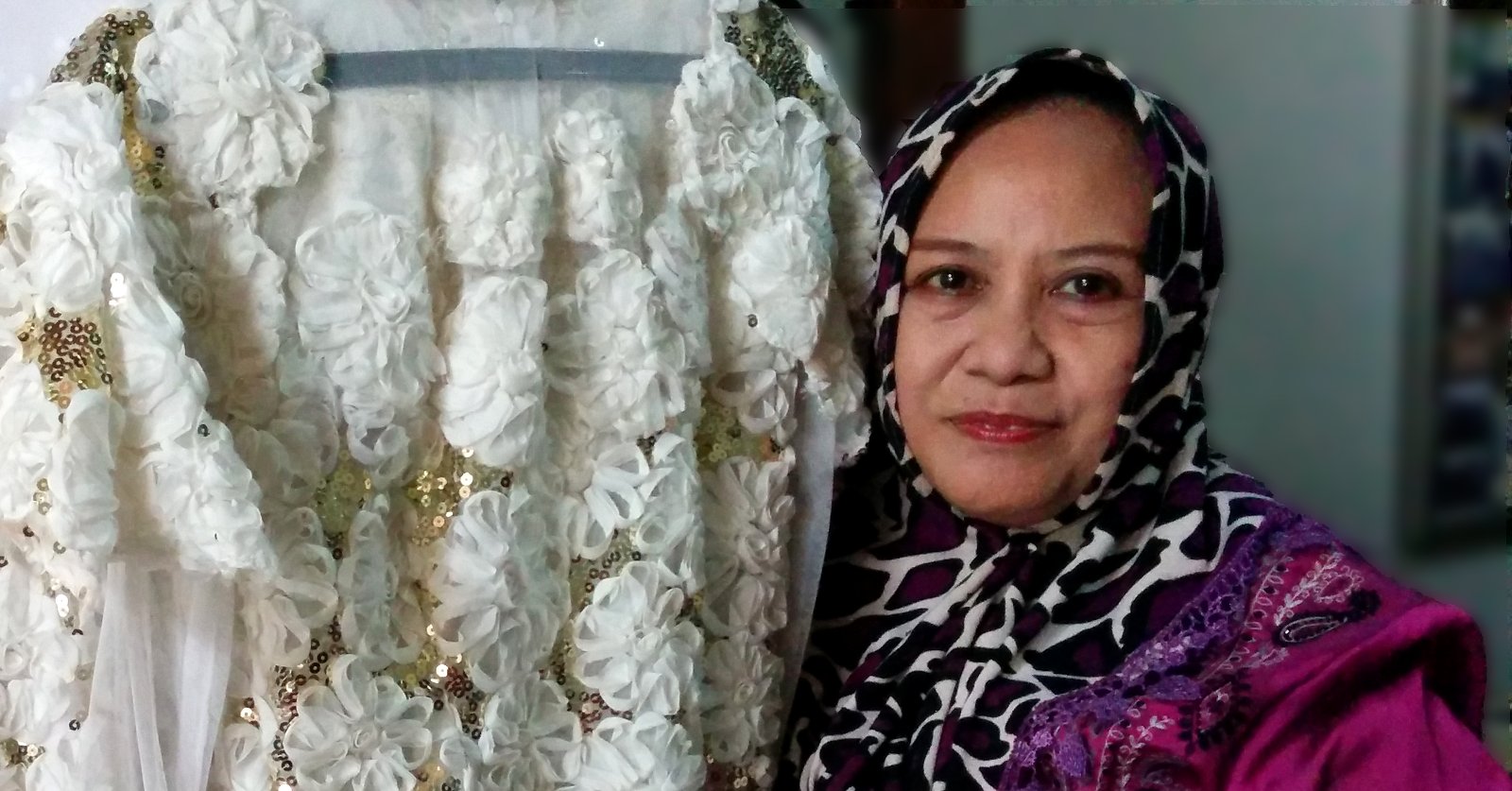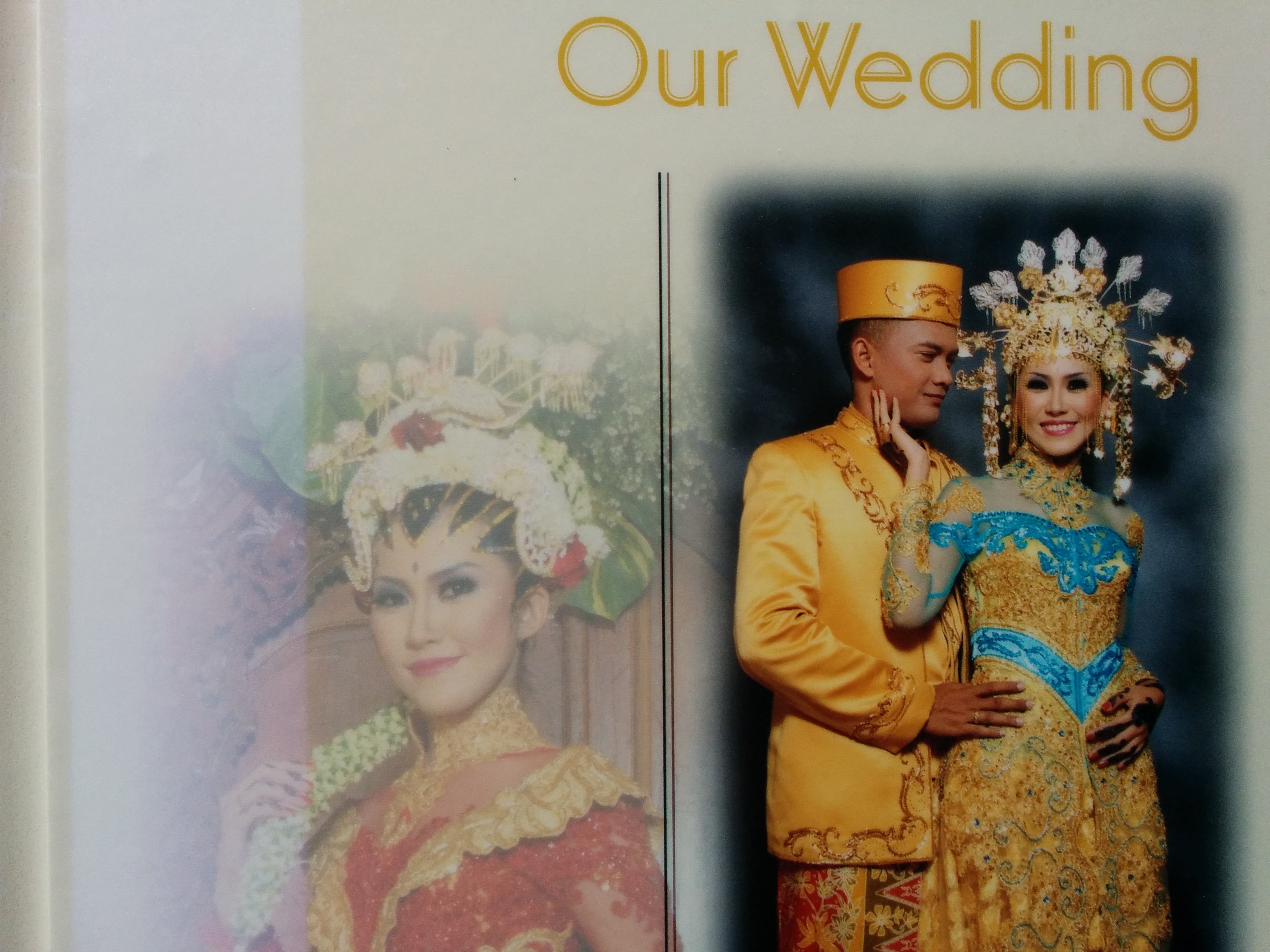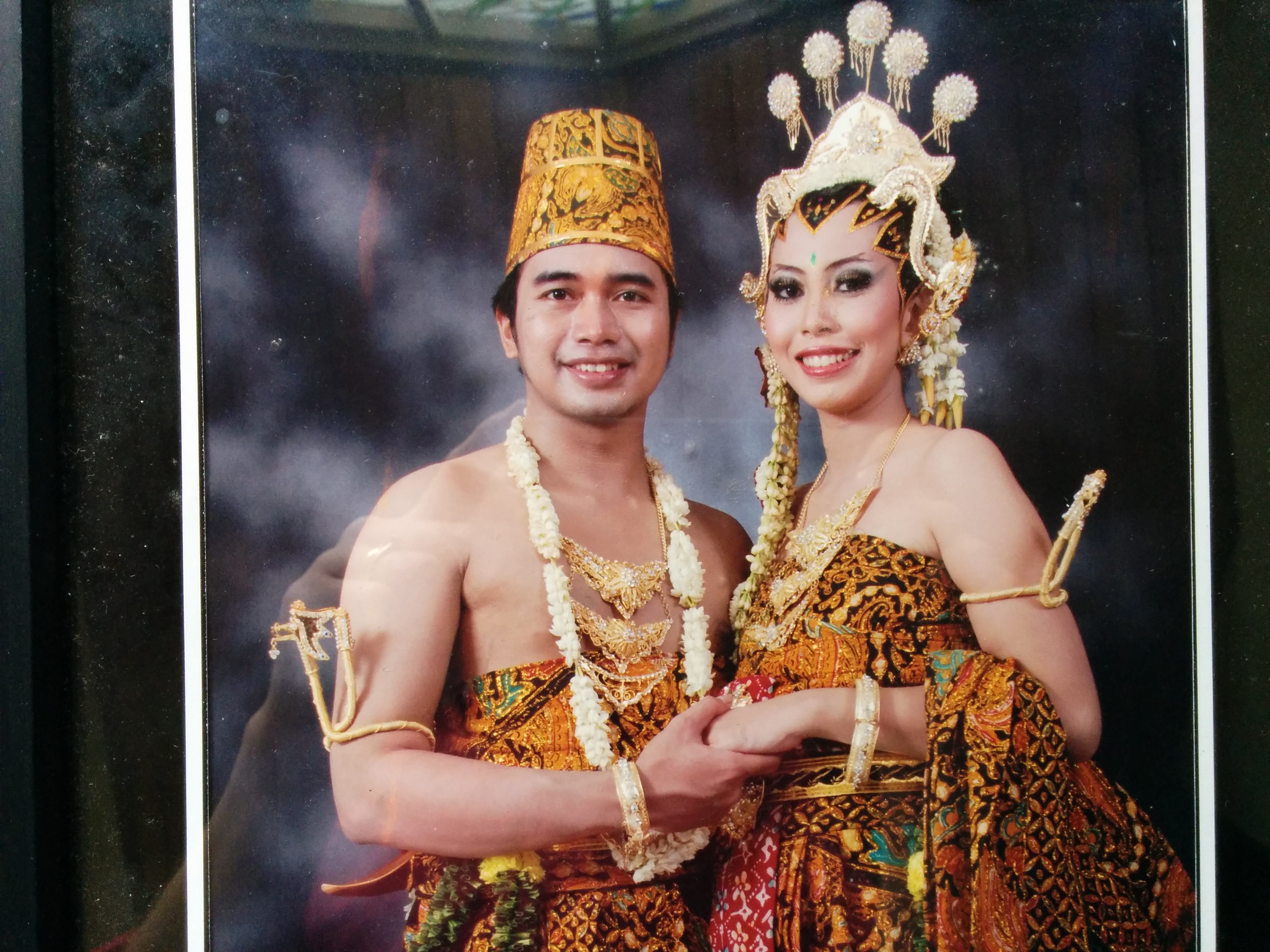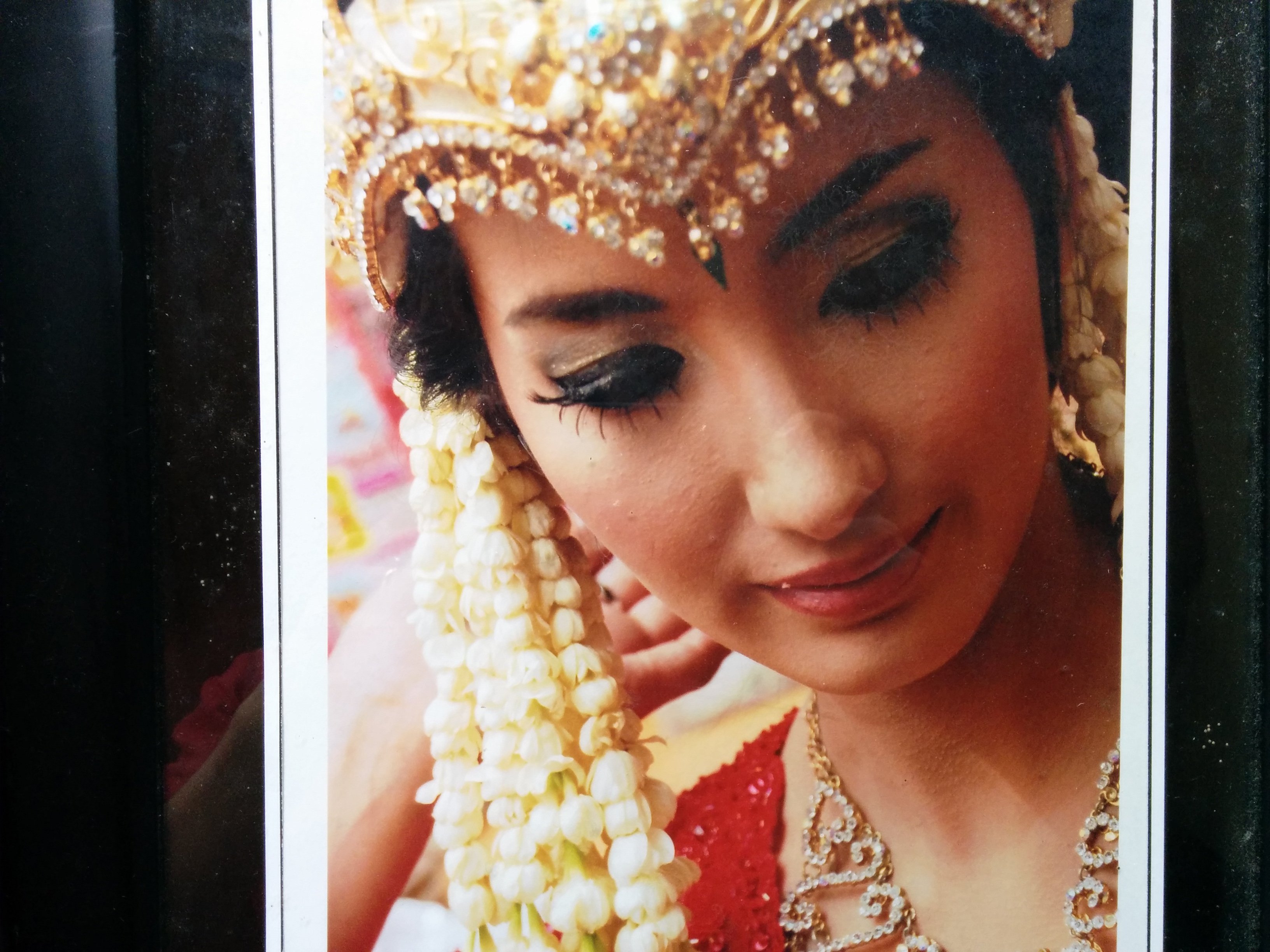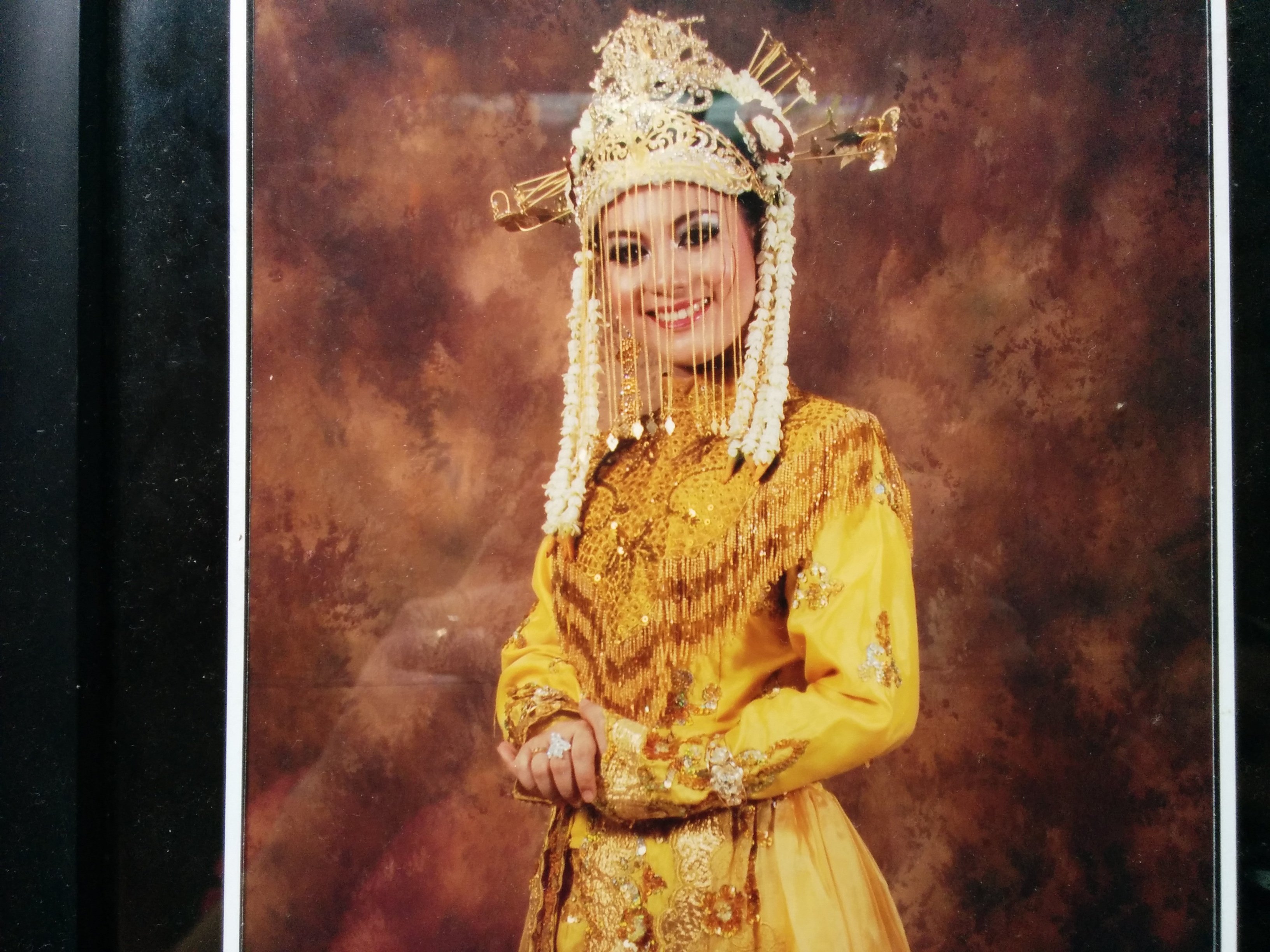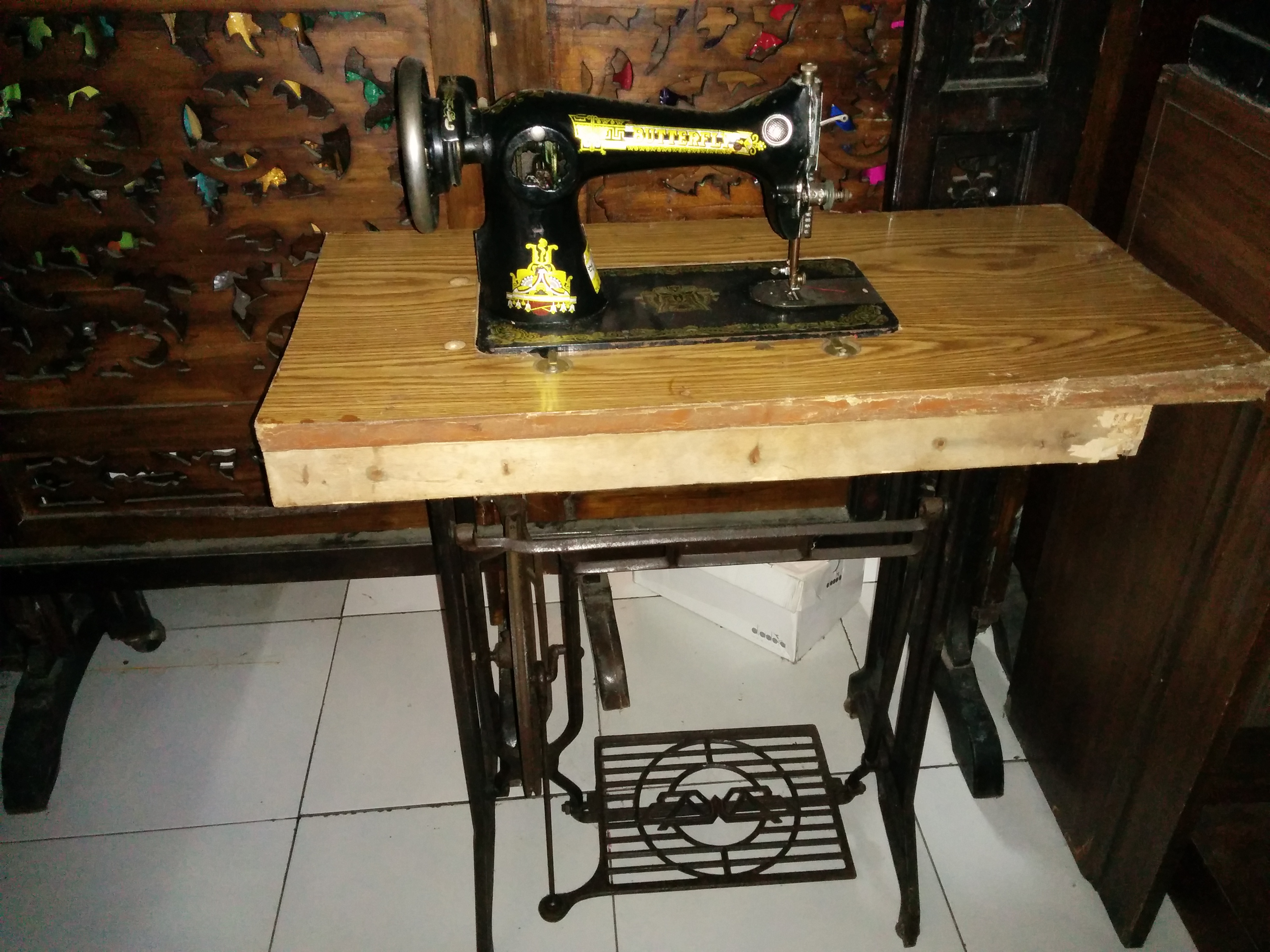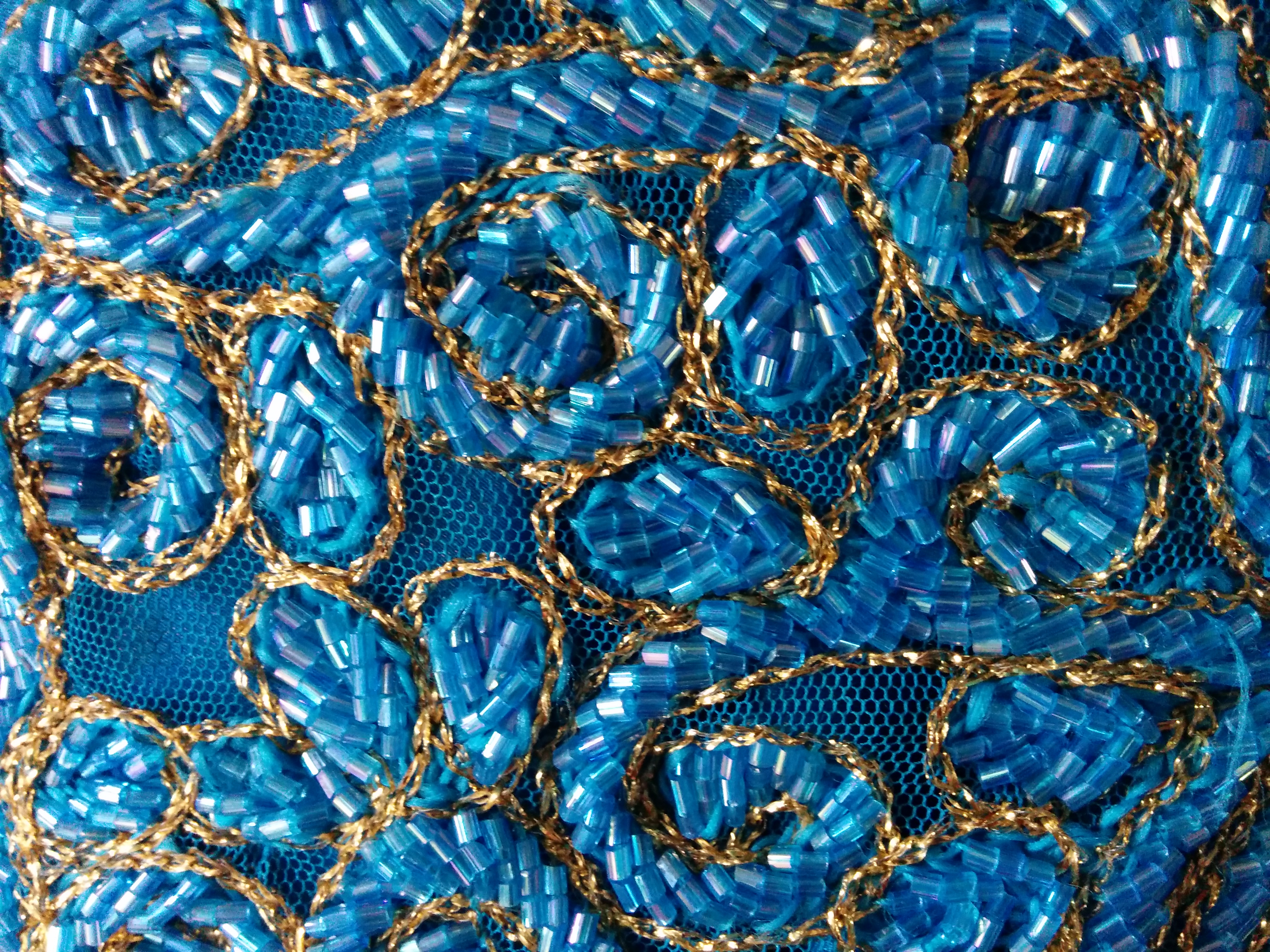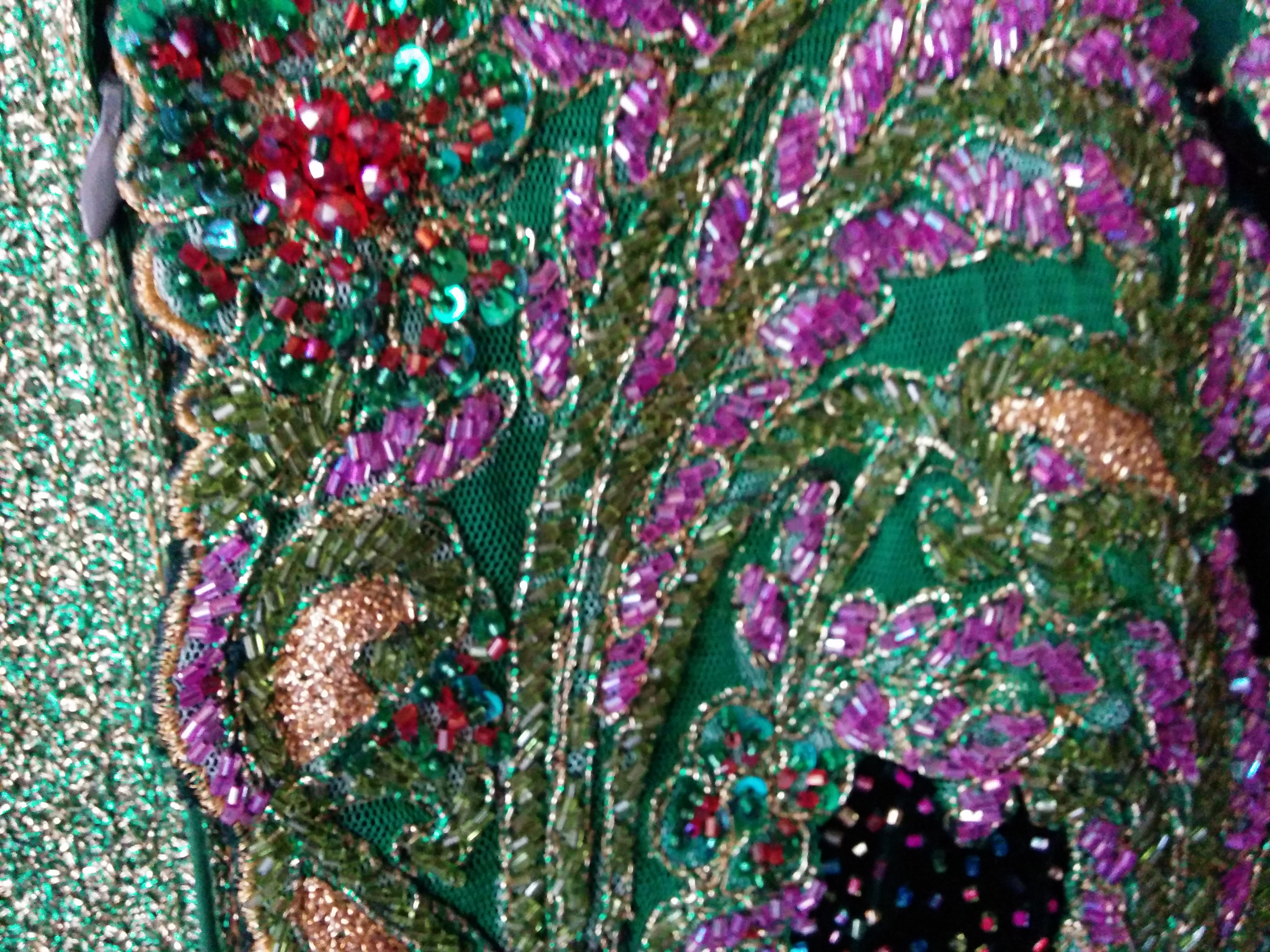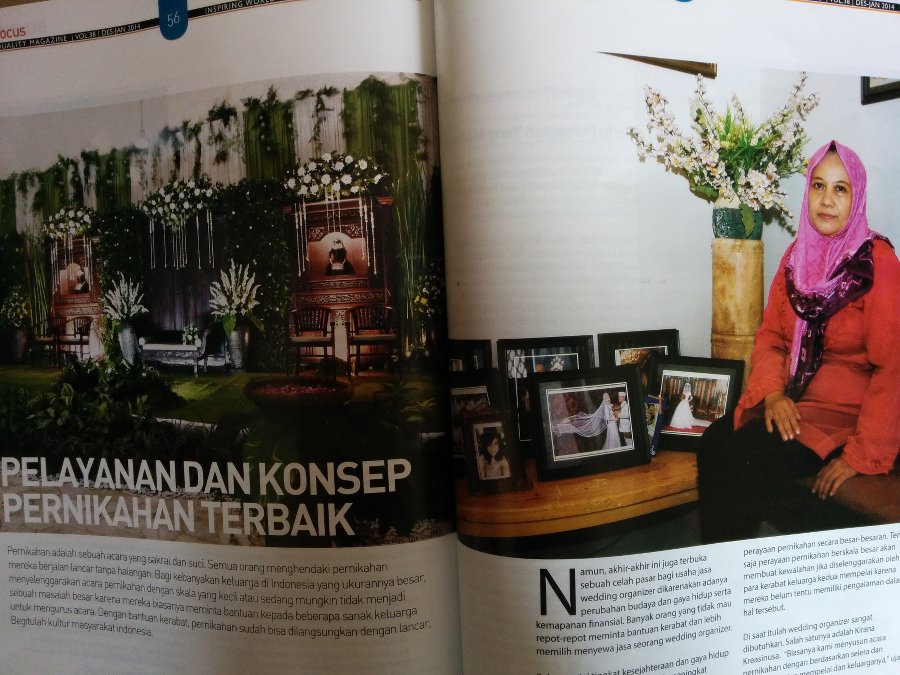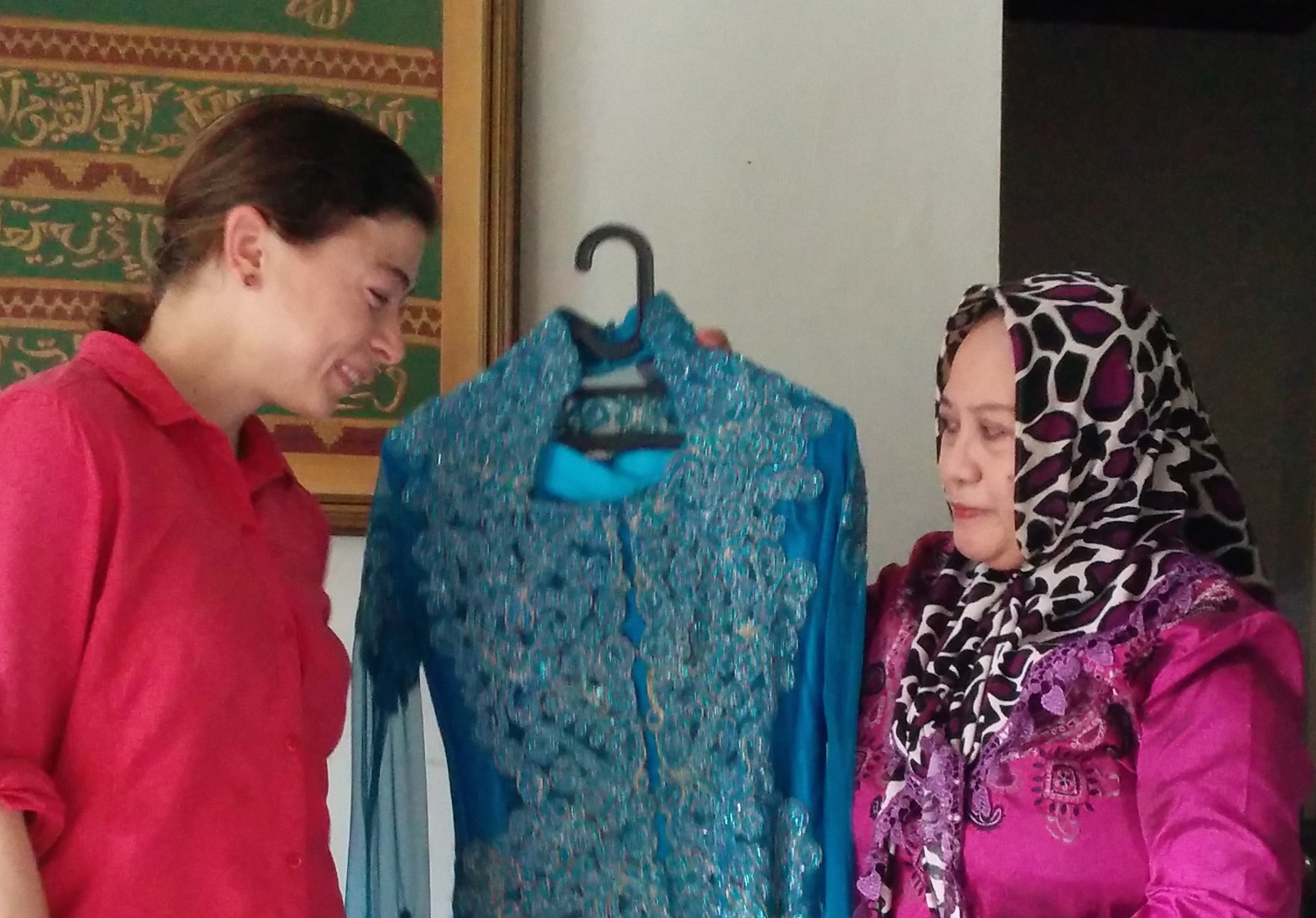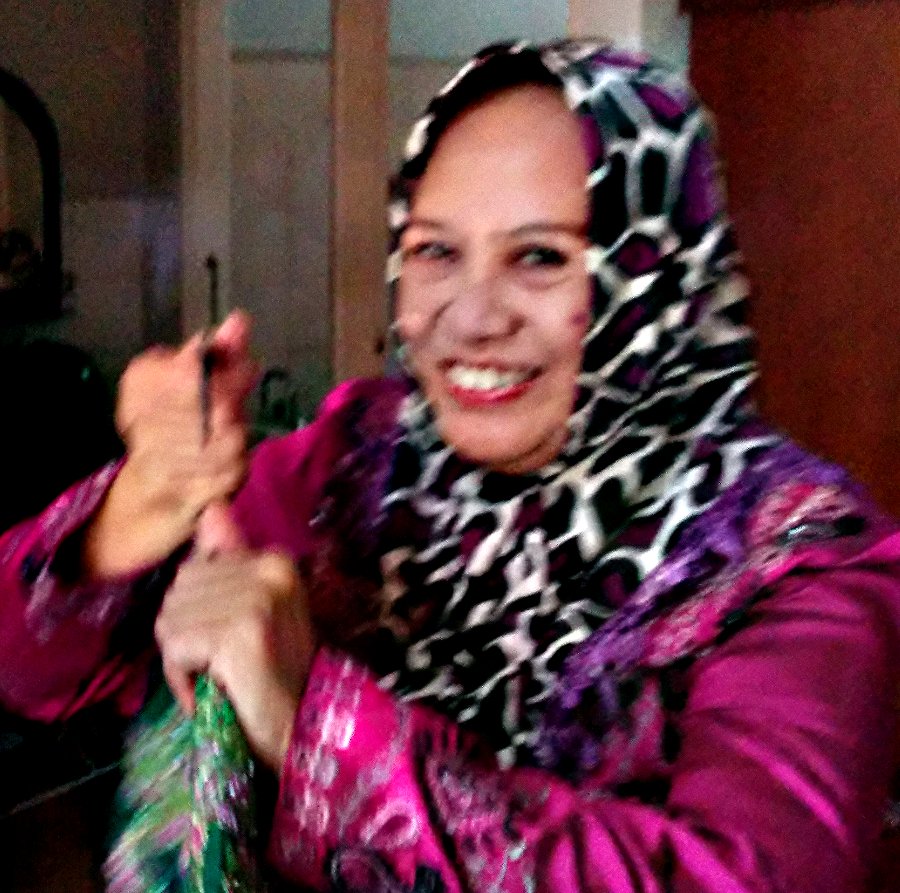By Julia Kurnia, Director
Sri Sulastika Sulhan, or “Bu Tika,” graciously welcomed me to her cool tiled home on the outskirts of Jakarta yesterday. Nothing in the home’s outward appearance hinted at the artistic masterpieces that were being produced inside.
Bu Tika modestly calls herself a “wedding organizer” – a service that encompasses venue management, interior decoration, photography, and above all, clothing production. Indonesia has some of the world’s most elaborate traditional dress, and weddings are the vehicle that keeps that tradition alive.
Page from a wedding photo album, costumes by Bu Tika.
Wedding clothing in Indonesia is not simply a matter of personal preference. Each of Indonesia’s hundreds of cultures has its own traditional costumes for men and women of different ages, which have their roots in the rich kingdoms that flourished in the islands in medieval times. Observing traditional dress, down to the tiniest detail, at important life events like weddings is how people show respect for their elders – a central value in Indonesian culture.
Jakarta is a melting pot of traditions from all over Indonesia, and in the fifteen years she’s been in business, Bu Tika has produced a staggering variety of traditional wedding outfits to accommodate them.
Various wedding gowns produced by Bu Tika
Her wedding organizer service is a family endeavor, and brothers, sisters, nieces and nephews work together to piece together clothing for big orders.
Bu Tika’s sewing machine.
Normally her brothers and sisters do the sewing, and Bu Tika adds beadwork and embroidery. Producing a single hand-embroidered bridal gown takes three months, and the average price of a gown is about $400.
Beadwork done by hand
Bu Tika has never needed to advertise her services; customers come to her by word of mouth. She is well known as one of the best wedding planners in Jakarta, and has even been featured in a national magazine for the quality of her work.
Magazine article about Bu Tika’s wedding planning service
The main constraint to growth of her business is working capital: she explains that the normal practice in custom clothing production is to pay half of the agreed price when the outfits are halfway finished, and the rest upon delivery – so fabric, beads, even living expenses of the family members who work on the orders, need to be self-financed in advance.
Funding from Zidisha lenders is helping Bu Tika bridge this gap, so that she can accept larger orders. She explains that in this way, she will be able to grow the business and offer employment to more members of her extended family, while keeping the exquisite wedding traditions that she loves alive.


